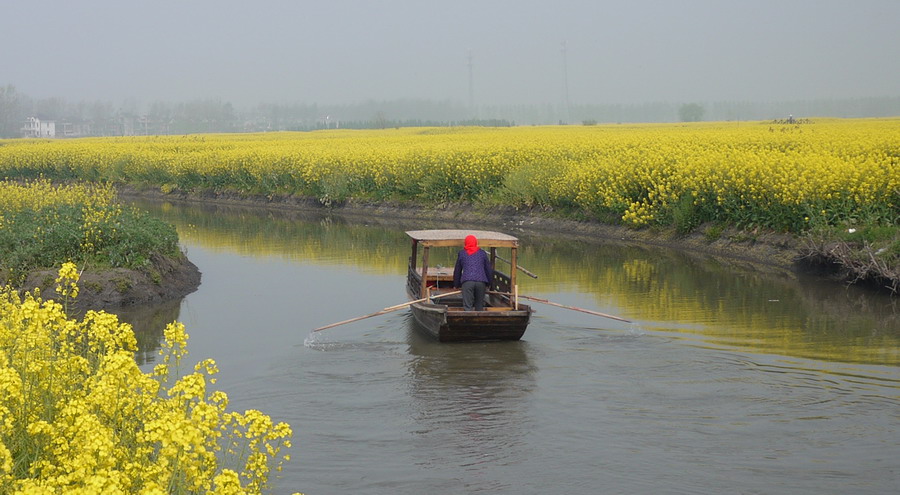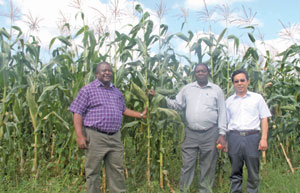Unique landscape on a slippery slope of existence
Updated: 2014-04-22 15:32
By He Yini in Jiangsu (chinadaily.com.cn)
|
|||||||||||
|
 A local woman rows on water surrounding the land pieces at the Duotian agricultural site, Xinhua city, Jiangsu province, April 9, 2014. [Photo by He Yini / chinadaily.com.cn] |
As natural factors and human activities begin to take toll on the traditional agro-systems, protecting them entails worldwide cooperation, said Li, also chairman of GIAHS Steering Committee of UN Food and Agricultural Organization, in a keynote speech on April 8 during the first conference of East Asia Research Association for Agricultural Heritage Systems, or ERAHS.
Xinghua Duotian is now gearing up to be designated as the Globally Important Agricultural Heritage Systems, or GIAHS, in a bid to seek international support to be better protected and conserved.
GIAHS was initiated in 2002 by the Food and Agricultural Organization of the United Nations, or FAO, to help conserve and support world's agro-cultural heritage systems. To date, there are altogether eight agricultural systems in China that have been designated as GIAHS, 19 in Asia and 27 worldwide.
"China is one of the countries that first responded to the GIAHS project. Japan and (South) Korea have also been active participants," said Min Qiangwen, a research fellow at the Institute of Geographic Sciences and Natural Resources Research of Cheese Academy of Sciences. "Japan now has five GIAHS pilot sites, and (South) Korea two."
"We are looking for remarkable land use systems and landscapes which are rich in biological diversity evolving from the co-adaptation of a rural community with its environment and needs and aspirations for sustainable development," said Parviz Koohafkan, president of the World Agricultural Heritage Foundation and senior consultant of GIAHS.
He added that costs of human encroachment on the ecosystem should not outweigh the benefits for present and future generations. "We look forward to more dynamic conservation of all agricultural heritage systems and their multitude of goods and services for food and livelihoods security."
Protecting agricultural heritage systems is a complicated job, but we need to always look at the bigger picture, said Anthony Fuller, distinguished professor of the Institute of Geographic Sciences and Natural Resources Research of Chinese Academy of Sciences.
"Sustainability is at the core of the whole complexity, we'd better approach them culturally instead of economically," he added.
|
 |
 |
 |
Today's Top News
Kerry urges Russia to help implement Ukraine deal
Bank of England fights hacking
Oil prices rise on Ukraine worries
Vettel rises to new challenges
EU hopes to strengthen climate co-op with China
64 dead in Korean ferry sinking
Nuclear plants to get the nod
No naval meet with Japan
Hot Topics
Lunar probe , China growth forecasts, Emission rules get tougher, China seen through 'colored lens', International board,
Editor's Picks

|

|

|

|

|

|





